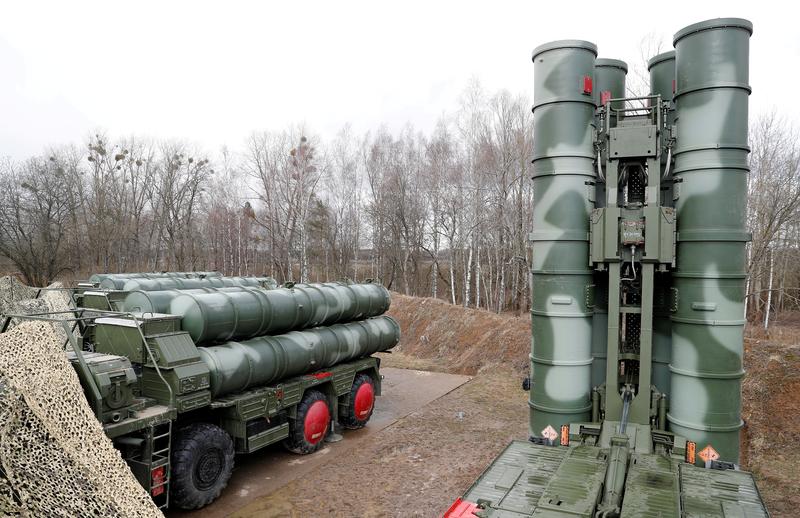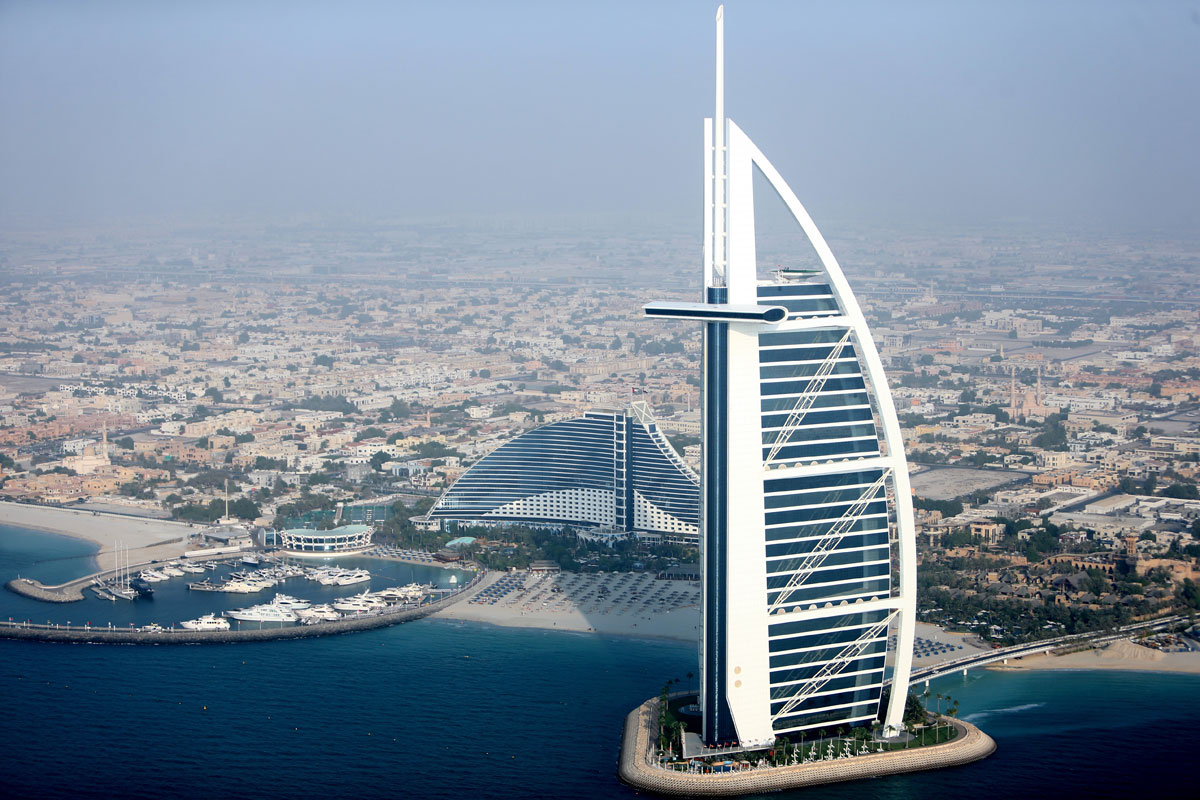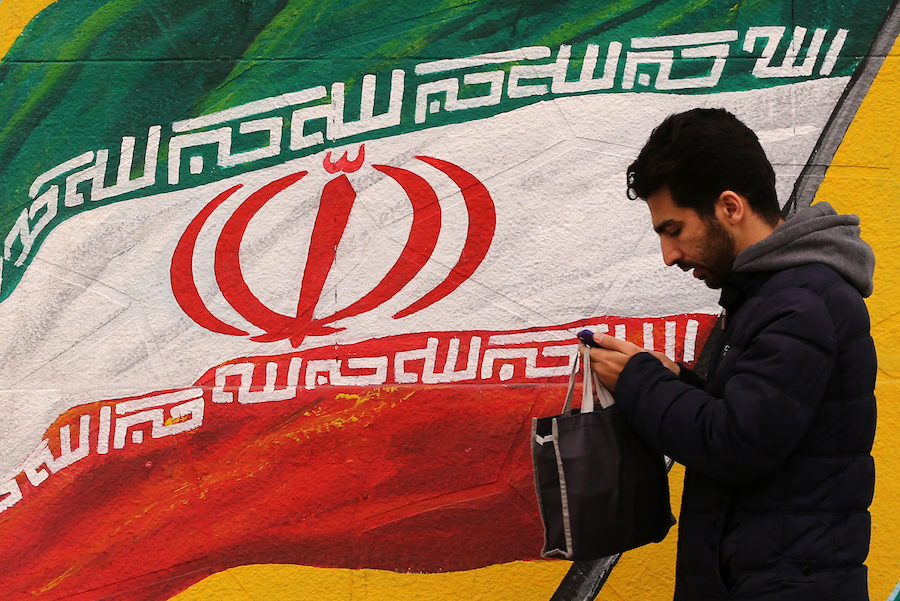Ankara defends S-400 purchase to Washington
ANKARA: Turkey’s recent purchase of a Russian missile defense system has caught the attention of the US while Turkey is trying to justify its future aspirations by leaning toward an old rival.
Turkish Defense Minister Hulusi Akar reiterated the country’s plans to use the controversial S-400 Russian missile defense system in the same way Greece deployed its S-300 system, within the NATO alliance, during a crisis between Turkey and Cyprus in the late 1990s.
According to Karol Wasilewski, an analyst at the Polish Institute of International Affairs in Warsaw, this is not the first time the Turkish decision-makers have used a false parallel between Greece’s S-300 and Turkey’s S-400 systems.
“I think we should be very cautious here,” he told Arab News. “If minister Akar really means that Turkey would operate S-400s exactly like Greece and outside Turkey’s territory, then we may interpret his words as an initial offer of compromise directed to the American administration.”
Caglar Kurc, a researcher on defense and armed forces, draws attention to the timing differences between the purchase of S-400s by Turkey and the installment of the S-300s on the Greek island of Crete.
“Russia was not such a big threat to the US and American-Russian relations were better in the 1990s,” Kurc told Arab News. “However, now they are considered main rivals. Therefore, the outcome varies depending on the changes of American interests.”
Akar was referring to Greece’s two S-300 PMU-1 battalions in Crete that are kept as a standalone system within NATO and implied that Greece never received such criticism for its purchase of the older S-300 missile system from Moscow.
Turkish President Recep Tayyip Erdogan had criticized the possession of the S-300s by Athens and claimed it is an obvious double standard.
Greece originally acquired the S-300s from Moscow to dissuade Turkish flights over its airspace. The crisis was temporarily resolved after Cyprus transferred the systems to Greece, which deployed them on Crete, where they remain today in storage. The S-300 missile system has been used only in NATO military drills without being integrated into the Greek air defense network.
Now the question is whether the past procurement of the S-300s is comparable with the “new generation” S-400s.
Washington stands against its NATO ally Turkey and its acquisition and operationalization of the Russian air defense system on its soil. The US kicked Turkey out of its F-35 fighter jet program, finding the S-400s were a significant threat to the stealth fighter jets and would not be interoperable with the Western-built hardware.
In response, Turkey offered a joint working group about the interoperability of the S-400s and F-35s.
Aaron Stein, director of research at the Foreign Policy Research Institute, thinks this is the most tangible suggestion he has ever seen from the Turkish side on this issue.
“It could be something that both sides discuss, but I think US officials will ask for more,” he told Arab News. “It is clearly a walk back from Ankara, so I guess that’s progress.”
Kurc also finds the Turkish offer as a good compromise.
“If the US wants to continue its partnership with Turkey instead of further alienating it, the offer would be accepted,” he said. “However, it is still unclear whether Washington will endorse it absolutely without any pre-condition.”
Turkey received the first components of the S-400 in July 2019. In October 2020, Turkey tested the Russian system for the first time in the northern city of Sinop — a move that was harshly condemned by the US State Department.
In December 2020, the US punished Ankara with sanctions under the Countering America’s Adversaries Through Sanctions Act (CAATSA), while the issue ranks top on the agenda of the Joe Biden administration.
“The S-300 in Crete was meant for Cyprus. It ended up in Crete because Ankara objected so vociferously to its original deployment site. The US Air Force (USAF) does train against it,” Stein said.
“However, the USAF has lots of air defense goodies in the continental US including high-end Russian systems. It is not absolutely necessary to train in Crete to familiarize pilots with the system, nor do I expect it vital to train against a Turkish S-400,” he added.
Wasilewski instead suggests a solution in which the S-400s are kept in storage in, for example, Northern Cyprus.
“It would require both Turkey’s willingness to compromise and very skillful diplomacy on the US side,” he said. “It would also require solving the worries of Cyprus, yet I still see this as the best solution.”
In this way, Wasilewski thinks that on one hand, the US would get rid of a problem with its ally, and on the other, Turkish decision-makers could sell such a deal to their nationalist electorate more easily.
Ankara, however, pledged to proceed with talks for the procurement of a second batch of the missiles from Moscow despite the US opposition. However, during his phone meeting with Erdogan’s top adviser Ibrahim Kalin last Tuesday, Jake Sullivan, US national security adviser, expressed his country’s concern about Turkey’s acquisition of the S-400s that “undermines the alliance’s cohesion and effectiveness.”
US Secretary of State Antony Blinken will hold a phone call with Turkish Foreign Minister Mevlut Cavusoglu on Wednesday, and the S-400s top the US agenda this time.

S-400s still an issue for US-Turkish ties under BidenTurkey says turning back on S-400s ‘problematic’, seeks US dialogue



